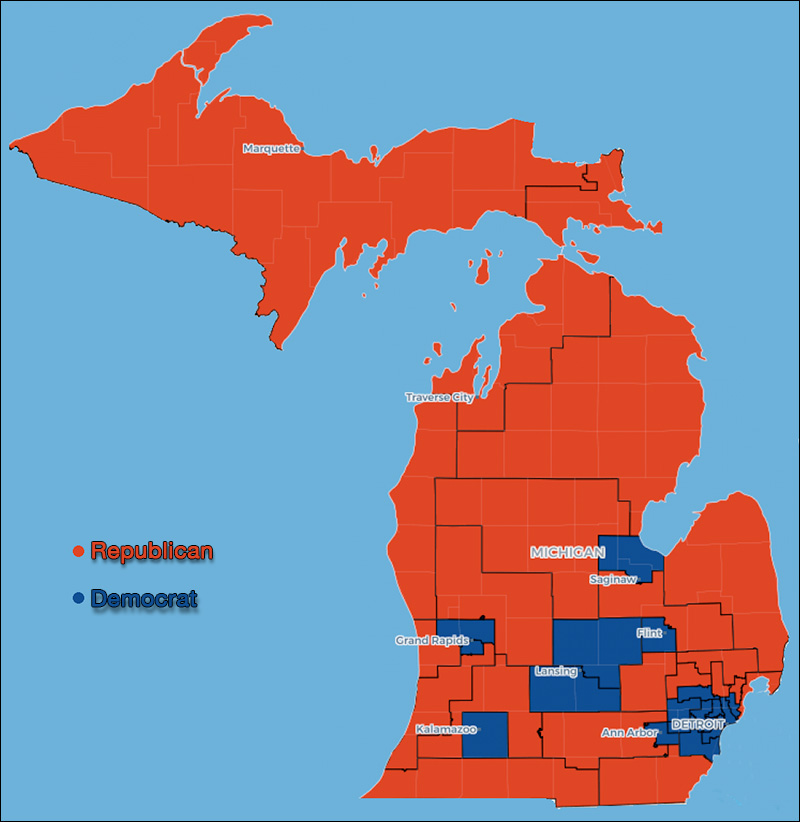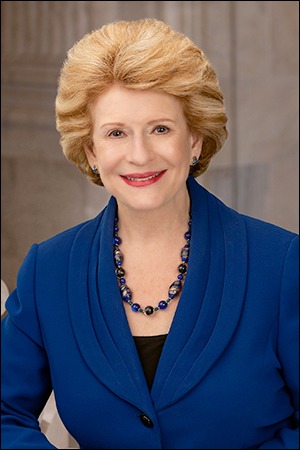By Jim Ellis — Tuesday, Feb. 7, 2023
President

Democratic National Committee chair Jaime Harrison speaks at the DNC’s winter meeting, in Philadelphia.
The new schedule propels South Carolina, home to DNC Chairman Jaime Harrison, as the first primary state, which will presumably be scheduled for Feb. 3, 2024. New Hampshire and Nevada would share a primary date almost exactly a year from now, on Feb. 6, 2024. Georgia would then vote on Feb. 13, with Michigan following on Feb. 27. The Committee is giving both New Hampshire and Georgia, which are asked to comply with the new DNC schedule, until June 3, 2023 to enact new election laws. Considering the two states have Republican governors and legislatures, it appears such approval will not be easy to obtain. The Michigan legislature and governor have already taken action to move their primary.
On the other hand, Republicans are keeping the traditional early schedule of Iowa, New Hampshire, Nevada, and South Carolina. This means we could see at least some of these states holding separate nominating events for each party.
Senate
Montana: Potential New Candidate — The National Journal is reporting that first-term state Attorney General Austin Knudsen, the former eastern Montana Roosevelt County District Attorney, is considering a US Senate run. Most of the attention, in terms of potential opponents for Sen. Jon Tester (D), has centered around US Reps. Matt Rosendale (R-Glendive) and Ryan Zinke (R-Whitefish). A spokesperson for AG Knudsen did not confirm or deny the report, only to say that “announcements regarding future plans will come at a later date.”
The Montana race will be a top Republican conversion target in 2024. Sen. Tester said he will make a decision about seeking a fourth term before the end of March. Should Knudsen enter the Senate race, he would risk his current position as his office is also on the ballot in 2024.
House
IN-5: Rep. Victoria Spartz (R) to Retire — Second-term Indiana US Rep. Victoria Spartz (R-Noblesville) announced on Friday that she will not enter the open US Senate primary, and won’t even seek re-election to the House. Rep. Spartz had previously confirmed that a Senate race was under consideration, but she was not viewed as a particularly strong potential candidate. The surprise decision, however, was her saying that she will retire completely from elective politics when her current term ends. The congresswoman said she has teenage daughters who need her guidance at home.Indiana’s post-redistricting 5th CD is securely in the Republican column. The FiveThirtyEight data organization rates the seat as R+22, and Dave’s Redistricting App calculates the partisan lean at 57R – 40D. The major population centers are the communities of Fishers, Muncie, Noblesville, and Kokomo.
The Spartz retirement decision means six seats will already be open in the 2024 election cycle. Aside from the Indiana congresswoman leaving the House, Reps. Ruben Gallego (D-AZ), Katie Porter (D-CA), Adam Schiff (D-CA), Jim Banks (R-IN), and Alex Mooney (R-WV), have all formally announced their intentions to run for the Senate.
States
North Carolina: State Supreme Court will Reconsider Election Rulings — In a continuing game of political football between what was the Democratic controlled state Supreme Court and the Republican legislature, the new Supreme Court voted to reconsider two election-oriented decisions that the previous panel rendered at the end of its tenure in January. The previous court, a 4D-3R majority, struck down the North Carolina state Senate map as a partisan gerrymander, and determined the state’s voter ID law is unconstitutional. The new court, a 5R-2D majority, will now reconsider each of those rulings.
North Carolina redistricting has been a decade-long battle between the state Supreme Court and the legislature. In the Tar Heel State, the governor has no veto power over redistricting. Now that the high court is in Republican hands, it is likely the justices will interpret the laws closer to what the Republican majority in the legislature has repeatedly enacted. This, and the US Supreme Court hearing the North Carolina partisan gerrymandering case, is likely to soon stabilize the NC redistricting and election law situation.






